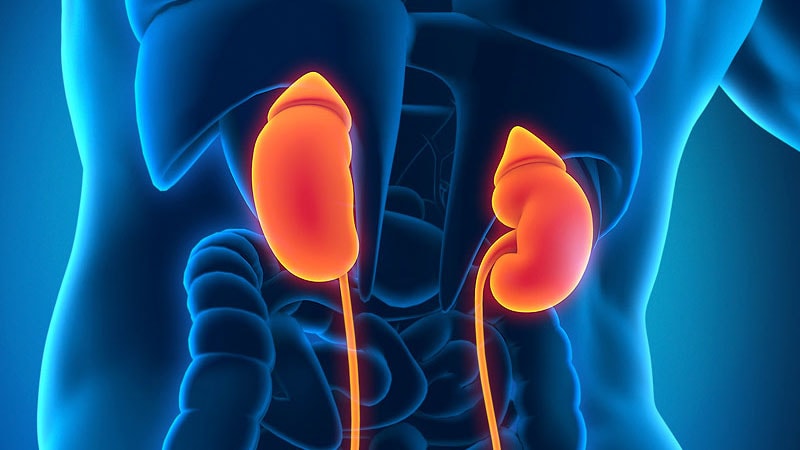Higher Risk of Adverse Events in Renally Cleared Cancer Medications
Core Concepts
Patients with a cystatin C-based estimated glomerular filtration rate more than 30% lower than their serum creatinine-based eGFR have a higher risk of adverse events with renally cleared cancer medications.
Abstract
TOPLINE:
- Higher therapeutic drug levels and more adverse events in patients with eGFR discordance.
METHODOLOGY:
- Study with 1869 adult cancer patients with eGFR measurements.
- Primary exposure: eGFR discordance defined as eGFRcys > 30% lower than eGFRcr.
- Primary outcome: Risk of adverse events with specific medications.
TAKEAWAYS:
- 29% of patients had eGFRcys more than 30% lower than eGFRcr.
- Increased risk of adverse events with medications in these patients.
- Adjusted risk of 30-day mortality was significantly higher.
IN PRACTICE:
- Higher rates of adverse events and mortality in patients with eGFR discordance.
SOURCE:
- Study led by Paul Hanna, MD, published in JAMA Network Open.
LIMITATIONS:
- Overestimation of eGFR discordance rate and single-time assessment of creatinine and cystatin C.
DISCLOSURES:
- No relevant financial relationships reported.
Customize Summary
Rewrite with AI
Generate Citations
Translate Source
To Another Language
Generate MindMap
from source content
Visit Source
www.medscape.com
A Risk for Adverse Events in Cancer Meds Cleared Renally
Stats
Roughly 29% of patients had eGFRcys more than 30% lower than their eGFRcr.
Patients with eGFRcys more than 30% lower had increased risk of 30-day mortality (adjusted hazard ratio, 1.98).
Study included 1869 adult cancer patients.
Quotes
"We found a considerably higher rate of supratherapeutic drug levels and [adverse events] associated with select renally cleared medications and increased risk of death in patients with an eGFRcys that was more than 30% lower than the eGFRcr compared with patients with a concordant eGFR or those whose eGFRcys was more than 30% higher than the eGFRcr,"
Key Insights Distilled From
by Megan Brooks at www.medscape.com 07-19-2023
https://www.medscape.com/viewarticle/994521
Deeper Inquiries
How can healthcare providers adjust medication dosages for patients with eGFR discordance?
Healthcare providers can adjust medication dosages for patients with eGFR discordance by considering the cystatin C-based eGFR as a more accurate reflection of renal function in these individuals. Since therapeutic drug levels are higher in patients with eGFRcys more than 30% lower than eGFRcr, providers may need to lower the medication dosage to prevent adverse events. Regular monitoring of drug levels and renal function tests can help in adjusting dosages accordingly to ensure optimal drug efficacy and safety.
What are the implications of these findings on the current practices of prescribing renally cleared cancer medications?
These findings have significant implications on the current practices of prescribing renally cleared cancer medications. Healthcare providers need to be aware of the potential risks associated with eGFR discordance and the increased likelihood of adverse events in such patients. This may lead to a shift towards using cystatin C-based eGFR for more accurate dosing of renally cleared medications in cancer patients. It highlights the importance of individualized medicine and the need for closer monitoring and dose adjustments to improve patient safety and outcomes.
How can advancements in renal function assessment improve patient outcomes in cancer treatment?
Advancements in renal function assessment, such as the use of cystatin C-based eGFR, can significantly improve patient outcomes in cancer treatment. By accurately assessing renal function, healthcare providers can better tailor medication dosages to individual patients, reducing the risk of adverse events and improving treatment efficacy. This personalized approach can lead to better outcomes, including reduced medication-related toxicities, improved drug efficacy, and ultimately, enhanced patient survival rates. Regular monitoring of renal function using advanced assessment methods can help in early detection of changes, allowing for timely interventions and adjustments in cancer treatment plans.
0
